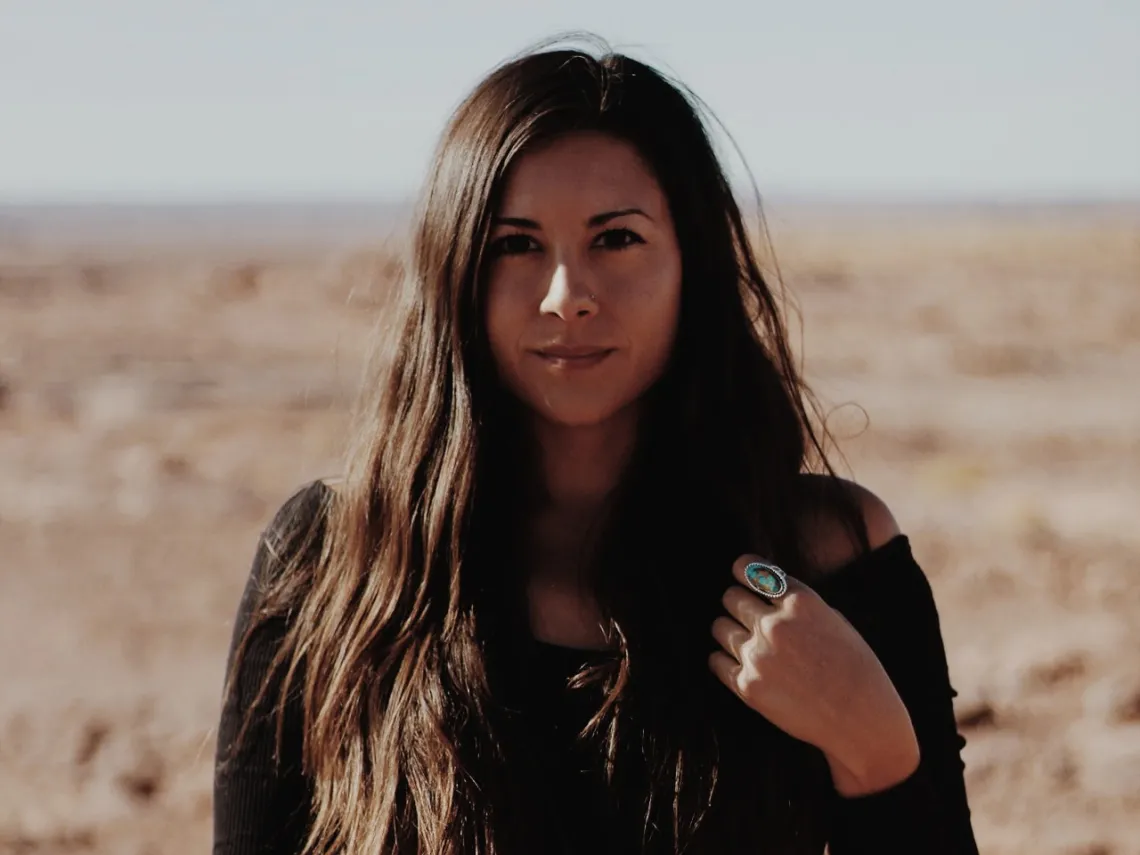Alumna Darrah Blackwater Seeks to Bridge the Digital Divide in Indian Country
COVID-19 is shining a new light on the devastating impacts facing communities without sufficient internet access

High-speed internet service is often now considered an essential resource, but in many parts of Indian country, the lack of internet access is creating a public health crisis for communities devastated by COVID-19 and also creating a slew of economic challenges. Recent University of Arizona Law graduate Darrah Blackwater (JD '20) is a citizen of the Navajo Nation and is using her research and advocacy skills to bring attention to and offer solutions for this digital divide.
According to the American Library Association, seven in ten residents on rural tribal lands remain without access to high-speed internet. In tribal communities without reliable internet service, people lack access to telehealth and mental health services. Students also face significant challenges as classes have moved to online instruction. The economic implications of internet access in Indian country are enormous. In 2018 alone, the internet sector accounted for $2.1 trillion of the U.S. economy, approximately 10% of gross domestic product. Aside from the economic impact of e-commerce and related industries, tribes lack ownership of the radio waves, called spectrum, and other telecommunications infrastructure needed to develop internet service on tribal lands. These spectrum rights are worth hundreds of billions of dollars and will only become more valuable over time.
“Internet access is vital to indigenous communities for myriad purposes: emergency communication, distance learning, telehealth, remote economic opportunities, and data gathering, to name a few," says Blackwater, who is a policy adviser to the Internet Society’s 2019 Indigenous Connectivity Summit. "COVID-19 is shining a light on the digital divide in Indian country, revealing devastating impacts. Now is the time to figure out how to connect”
Blackwater, who previously interned in the Office of the Assistant Secretary of Indian Affairs in Washington, D.C., with the Inspector General of the Department of Interior, and at Hobbs Straus Dean & Walker as a federal Indian law clerk, has been increasing awareness and advocating for tribal spectrum rights through a series of op-eds, presentations and webinars. Most recently, she wrote an op-ed in the Arizona Republic titled “For tribal lands ravaged by COVID-19, broadband access is a matter of life and death.”
She has also led webinars on the topic through South by Southwest (SXSW) and the Indigenous Graduate Education in Science and Engineering in the Southwest. On the SXSW webinar “How Internet Access Can Preserve Native Cultures,” Blackwater joined a panel of experts to discuss how internet access can protect Native cultures and increase community engagement.
In addition to her public advocacy on the topic of addressing the digital divide in indigenous communities, Blackwater has conducted extensive research on the topic for her substantial paper, "Broadband Internet Access: A Solution to Tribal Economic Development Challenges," which will be published later this year by the Indigenous People’s Journal of Law, Culture, and Resistance at the University of California, Los Angeles.
